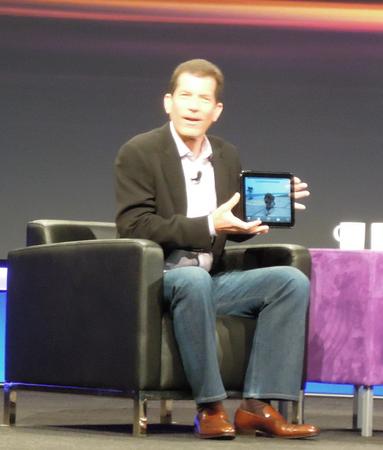HP's webOS-based TouchPad will debut on July 1, but the success of the iPad clone may hang on its ability to attract developers to bolster the OS

HP Inc. (NYSE: HPQ)'s TouchPad is finally ready for prime time and will be debuting in a Wi-Fi only version on July 1 followed by a 3G variant for AT&T Inc. (NYSE: T) later this summer.
HP's head of mobility, Jon Rubinstein, showed off the webOS-powered tablet at Qualcomm Inc. (Nasdaq: QCOM)'s Uplinq conference in San Diego earlier this month, where he characterized the tablet market as overcrowded and said many of the tablets available today will fail. (See HP Open to 'Special' webOS Partners.) 
They say
So what will stop the TouchPad from facing a similar fate of failure? AllThingsD, which got the lowdown on the tablet from HP CEO Léo Apotheker, believes the combination of the hardware and OS coupled with HP's multiple-device integration strategy could propel it to the front of the tablet pack. Reporter John Paczkowski does note, however, that its application and content ecosystem might need growing, something Rubinstein admitted at Uplinq. InformationWeek and GigaOm agree that the TouchPad needs some work on building up its apps, which number 6,000 to date. As Eric Zeman points out, the lack of apps was a kneecapper for the Android-based Motorola Inc. (NYSE: MOT) Xoom, LG Electronics Inc. (London: LGLD; Korea: 6657.KS) G-Slate and BlackBerry 's PlayBook.
What's more, the Wi-Fi-only version of the device will retail for $499.99 for the 16GB model and $599.99 for the 32GB version, which is comparable to Apple Inc. (Nasdaq: AAPL)'s iPad. Colin Dixon asks a valid question: "Without software, how will HP convince buyers to purchase a TouchPad, when a comparable tablet with a much more extensive software library is priced the same?"
We say
In all other respects, the TouchPad appears to be a viable competitor to the iPad with similar hardware specs and Qualcomm's speedy dual-core processor on board. The webOS software is also impressive, so HP's chances of success may hang on its ability to attract the developer community to build up the content experience. Rubinstein said HP will do this through "aggressive outreach" and by being the easiest OS to develop for.
Read more on the TouchPad below.
Qualcomm's Snapdragon Spreads Its Wings
HP Tablet Uses Atheros
HP Veers Into the Future of WebOS
— Sarah Reedy, Senior Reporter, Light Reading Mobile
About the Author(s)
You May Also Like











